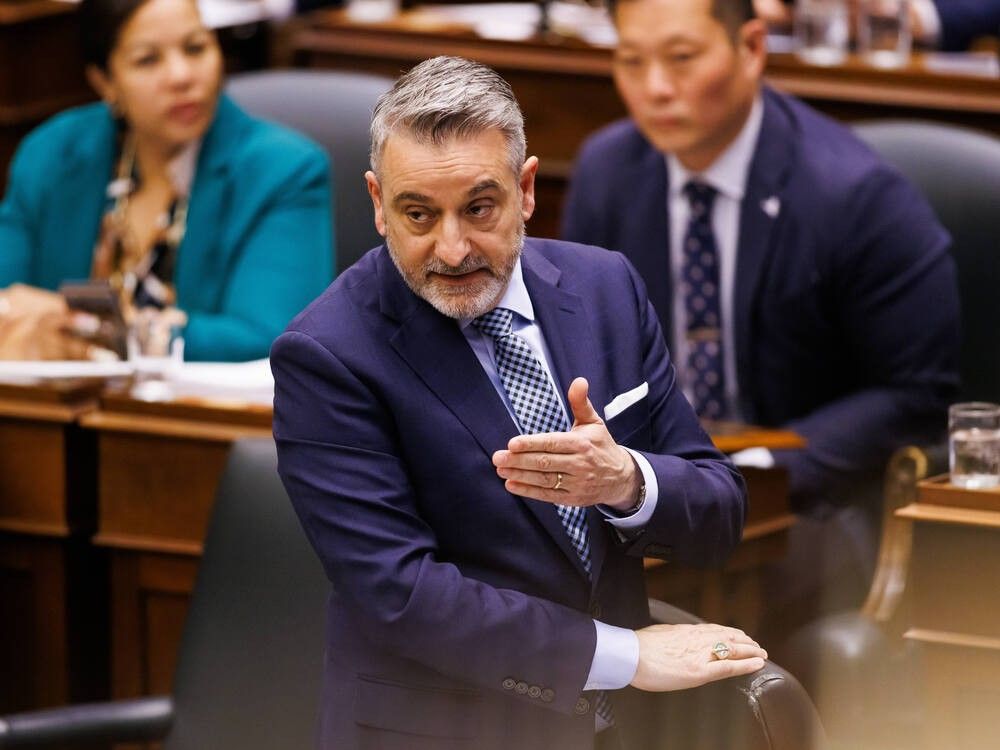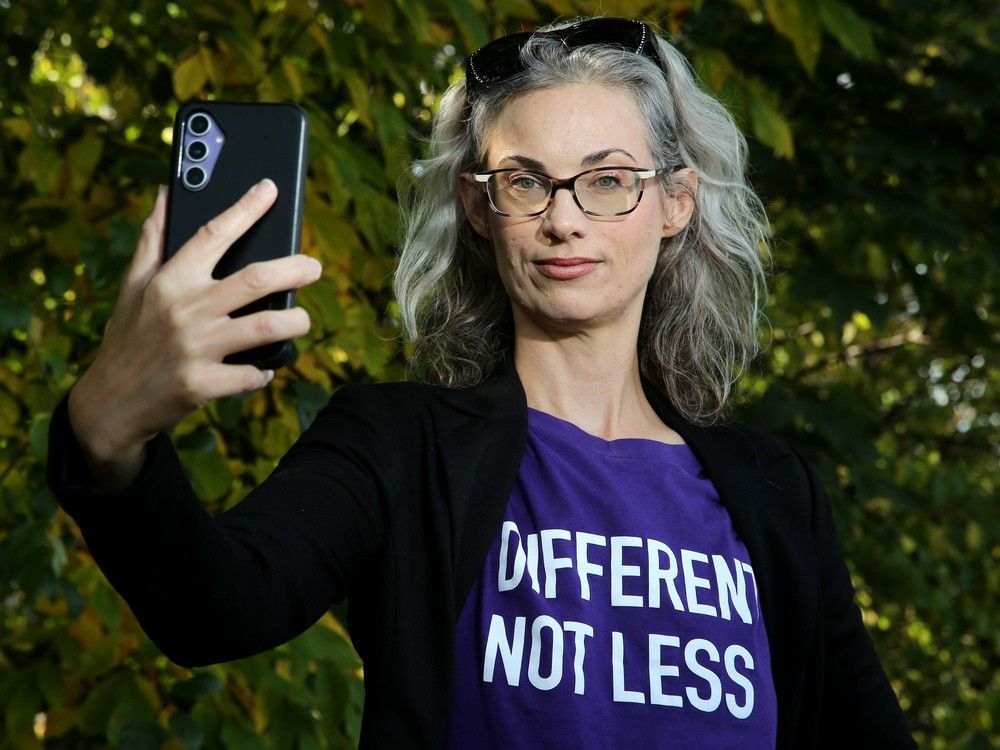The question of whether or not parents can live-stream the proceedings of a school board committee is raising questions about public access to the decision-making process.
The Accessibility for Ontarians with Disabilities Act (AODA) Alliance, a disability advocacy group, has charged that Education Minister Paul Calandra banned
school boards under supervision
from live-streaming their Special Education Advisory Committee (SEAC) meetings in a “troubling and undemocratic move.”
At the Ottawa-Carleton District School Board, a SEAC meeting was halted temporarily on Oct. 8 after a school board employee found that a parent, Cathy Varrette, was live-streaming it using her smartphone.
Board staff withdrew to discuss the matter. Varrette was not prevented from recording and live-streamed the entire meeting.
Varrette, who has a son with autism, often watches the SEAC live-stream from home so she can help her son get ready for bed while also learning about issues affected students with disabilities. On the night of Oct. 8, she attended the meeting in person. Varrette said her phone was propped up in plain sight. She later posted the recording to YouTube.
Following SEAC meetings from home is crucial to parents who juggle care for a child with complex needs with keeping on top of potential changes to special education, Varrette said. That’s particularly important to parents after
39 specialized OCDSB classes were on the chopping block
earlier this year, she added.
“I’m concerned that, although nothing happened at this meeting, cuts will happen and I won’t be able to participate,” she said.
School boards under provincial supervision, including the OCDSB, no longer hold meetings of their boards of trustees. However, several committees, including SEACs, are mandated under Ontario’s Education Act.
SEAC meetings are a lot of inside baseball. They attract only a handful of people and receive little public attention. But the meetings let parents know about the politics of what’s going on and how to navigate the system for their children, Varrette said.
“I believe hard cuts are coming for special education. I want to be in a better situation to advocate,” she said.
David Lepovsky, chair of AODA Alliance and SEAC chair at the Toronto District School Board, said Calandra had claimed he put school boards under supervision over issues of finances.
“Live-streaming doesn’t cost a penny. It’s just a matter of throwing a switch,” Lepovsky said.
“This is a slap in the face to parents of children with disabilities and the children. These are people who live under a lot of stress. From 7 to 9 at night, these parents are busy. What kind of cold-heartedness can lead to this kind of decision?”
Many parents of children with disabilities lead isolated lives. Watching these meetings lets them know they’re not alone, Lepovsky said.
“It’s an emotional lifeline.”
In recent years, the OCDSB has live-streamed SEAC meetings. The question is whether a member of the public like Varrette can step in and do it. The Ontario Autism Coalition has decided to live-stream future SEAC meetings at all the school boards under supervision.
In a statement, the OCDSB said all committee meetings remained open to the public.
“Committee members and delegates can still participate remotely when necessary and all are welcome to attend in person,” a spokesperson said. “Minutes, agendas, and decisions from all committees are also posted publicly to ensure transparency and accessibility for families and the broader community.”
However, the OCDSB not respond to questions about live-streaming.
Calandra’s office also did not address questions about whether the Ministry of Education had “banned” live-streaming for school boards under supervision, as the OADA Alliance charged.

“While under supervision, the number one priority of my ministry supervisors is to enhance student success where trustees have failed,” Calandra said in a statement.
“I made this decision to maintain meetings that are productive, professional and focused on improving student success and achievement, rather than serving as a forum for political commentary. At the same time, I ordered all meetings to remain open to the public with hybrid participation options with public posting of agendas, minutes, and decisions,” he said.
“To be clear I will be relentless in fighting for students, parents and teachers and focused on improving student achievement. Even when others fight to defend a system that has failed our students and teachers.”
Anthony Wong, a parent and member of SEAC, said it was important that SEAC meetings be live-streamed and that captioned recordings remained publicly available afterward.
“SEAC exists to give families of students with special education needs a genuine voice, yet many of those families simply can’t attend in person because of disability, caregiving responsibilities, or health reasons,” Wong said. “Accessibility should never depend on who’s able to drive downtown on a weekday evening.”
For many families, advocates and members of the community, live-streams and recordings are not optional conveniences, but the only means of participation, he said.
“Live access and captioned recordings ensure that families can follow the issues, understand the discussions, and see how decisions are made. Without them, the very people SEAC is meant to represent are excluded,” Wong said. “Accessibility, transparency, and inclusion are not abstract principles — they are the foundation of public trust and effective governance.”
Legally and historically, Ontario school boards have recognized that SEAC meetings are open by law and public by purpose, Wong said.
Section 207 of the Education Act makes committee meetings open to the public except for limited in camera matters, he said. Regulation 463/97 requires every school board to maintain an electronic-meeting policy that allows the public to observe proceedings — a practice reinforced during the COVID-19 pandemic, when live-streaming became the province-wide standard for transparency and accessibility.
Under the Accessibility for Ontarians with Disabilities Act, 2005 and its Integrated Accessibility Standards Regulation, school boards must provide information and communications in accessible formats on demand and ensure that posted web content — including recordings of meeting — meets accessibility standards such as captioning, Wong said.
“These are enforceable obligations, not symbolic gestures. Ultimately, maintaining live-streamed and captioned SEAC meetings is both a legal duty and a moral responsibility,” he said.
“It’s how the board demonstrates its commitment to openness, equity and respect for the families it serves. When SEAC remains visible, accessible, and inclusive, it fulfills the very spirit of why it exists in the first place.”
Calandra has mused that he might
eliminate Ontario’s English-language school board trustees
.
“These kinds of events foreshadow what might happen if the province decides to run school boards,” Lepovsky said.
Our website is your destination for up-to-the-minute news, so make sure to bookmark our homepage and sign up for our newsletters so we can keep you informed.
Related
- Facing record debt levels, Ontario hospitals told to balance budgets and find efficiencies
- Could the ByWard Market have too many social services?



